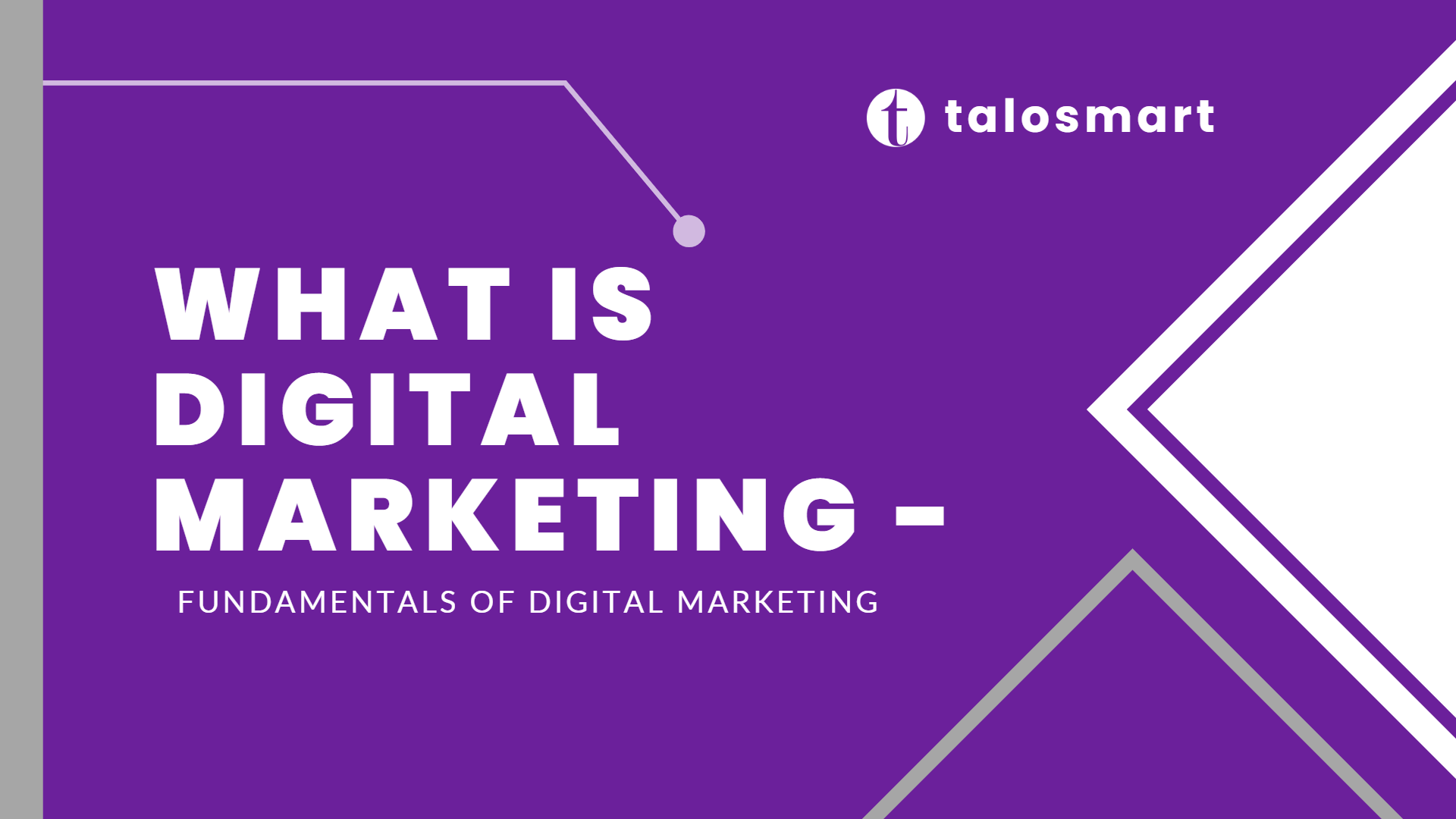In today's digital age, marketing has evolved significantly, and businesses need to adapt to the changing landscape. Digital marketing has emerged as a powerful tool that allows companies to reach their target audience more effectively and drive business growth. In this article, we will explore the fundamentals of digital marketing and provide you with a step-by-step guide on how to get started in this dynamic field.
What is Digital Marketing?
Digital marketing encompasses all marketing efforts that utilize digital channels and technologies to promote products, services, or brands. It involves leveraging various online platforms and strategies to engage with potential customers, increase brand visibility, and drive desired actions, such as website visits, lead generation, or sales conversions.
Getting Started with Digital Marketing:
1, Define Your Goals:
Before diving into digital marketing, it's crucial to define your goals. What do you want to achieve? Do you aim to boost brand awareness, increase website traffic, generate leads, or drive online sales? Clearly outlining your objectives will guide your digital marketing strategies and help you measure success along the way.
2. Identify Your Target Audience:
Understanding your target audience is essential for effective digital marketing. Who are your ideal customers? What are their demographics, interests, and online behaviors? Conduct thorough market research and create buyer personas to gain insights into your audience's preferences and pain points. This information will shape your content and messaging to resonate with your target market.
3. Build a Professional Website:
Your website serves as the foundation of your digital presence. It should be visually appealing, user-friendly, and optimized for search engines. Ensure that your website provides valuable information about your products or services, includes clear calls-to-action, and is mobile responsive. A well-designed website establishes credibility and serves as a hub for your digital marketing activities.
4. Search Engine Optimization (SEO):
SEO is the practice of optimizing your website and its content to rank higher in search engine results pages. Conduct keyword research to identify relevant search terms and incorporate them naturally into your website's content. Focus on creating high-quality, informative content that provides value to users. Optimize your meta tags, headings, and URLs for better search engine visibility.
5. Content Marketing:
Content marketing involves creating and distributing valuable and relevant content to attract and engage your target audience. Develop a content strategy that aligns with your business goals and addresses your audience's needs. Create blog posts, articles, videos, infographics, and other forms of content that educate, entertain, or inspire your audience. Promote your content through social media, email marketing, and guest posting to increase its reach.
6. Social Media Marketing:
Social media platforms offer a vast audience and opportunities for interaction. Identify the social media channels where your target audience is most active and create engaging profiles. Develop a consistent posting schedule and share a mix of curated and original content. Encourage audience participation, respond to comments, and leverage social media advertising to reach a wider audience.
7. Email Marketing:
Email marketing is a powerful tool for nurturing leads and building customer relationships. Develop an email list by offering valuable content or incentives in exchange for email addresses. Segment your list based on customer preferences and send personalized, targeted emails. Focus on providing valuable content, exclusive offers, and timely updates to keep your subscribers engaged.
8. Pay-Per-Click (PPC) Advertising:
PPC advertising allows you to display ads on search engines and other online platforms, paying only when users click on your ads. Conduct keyword research to identify relevant search terms and create compelling ad copy. Set a budget, monitor your campaigns closely, and optimize your ads for maximum return on investment.
9. Analytics and Measurement:
To gauge the success of your digital marketing efforts, it's important to track and analyze relevant metrics. Utilize tools like Google Analytics to monitor website traffic, conversion rates, engagement levels, and other key performance indicators. Use this data to identify areas for improvement and make data-driven decisions to optimize your digital marketing strategies.
Conclusion:
Digital marketing offers immense opportunities for businesses of all sizes to connect with their target audience and drive growth. By understanding the core concepts and implementing the strategies outlined in this article, you can embark on a successful digital marketing journey. Stay adaptable, keep learning, and continuously refine your strategies to stay ahead in the dynamic world of digital marketing.

Your experience on this site will be improved by allowing cookies.
 June 22, 2023 - BY Admin
June 22, 2023 - BY Admin